Federico J. Arioni’s Nobody is Crazy takes us on a philosophical journey through the intricacies of time and existence in his examination of one teenager’s crisis of identity. At the film’s center is Rafael, a troubled youth struggling with OCD who encounters the enigmatic Nobody, played with aplomb by writer/director Arioni himself.
Claiming to hail from parts temporal unknown, Nobody takes Rafael on a discursive adventure through the theoretical possibilities, and improbabilities, of chrononautical endeavors. More profoundly, their discussions explore what it means to truly inhabit the present moment and accept oneself.
Backed by a strong central performance from Manuel Gutierrez as Rafael, Arioni has crafted no mere time-travel yarn but a thoughtful meditation on perspective and living authentically within the flow of time.
Unraveling the Threads: A Tale of OCD, Time Travel, and Friendship
The film introduces us to Rafael, a troubled yet introspective teenager grappling with obsessive-compulsive disorder in its myriad forms. We learn of his difficult upbringing – an orphan adopted and later confronted with the fracturing of his foster family.
Staying with his exasperated mother, Rafael finds the traditional avenues of therapy and medication ineffective in quelling the rigid compulsions that isolate him. It is at his psychologist’s suggestion that Rafael reluctantly attends a support group, his last chance before the threatened military boarding school.
There, a most unexpected encounter awaits. Outside the meeting’s conclusion, Rafael crosses paths with an enigmatic stranger clad ominously in black mask and gloves. Introducing himself as Nobody, the man professes a most peculiar attribute – an ability to traverse the temporal stream at will. A time traveler? Rafael is understandably skeptical, yet equally intrigued by this eccentric figure who speaks so assuredly on life’s grandest mysteries.
Thus begins Rafael’s philosophical odyssey, as he seeks to uncover the veracity of Nobody’s claims through intense dialectic. Over frequent discursive walks through their hometown, Nobody proves the perfect companion for Rafael’s quest, easing his isolation with alternative perspectives on identity and the nature of existence. In time, their discussions draw the interest of free-spirited roller girl Daria, whose presence lightens their exchanges.
Together, this unconventional trio embark on an exploration of possibility that will reshape Rafael’s view of both his inner and outer worlds. By journey’s end, the truths unearthed may unsettle even the most grounded of perspectives on the fluid boundaries between sanity and extraordinary experience.
Masks and Minds: The Compelling Characters of “Nobody is Crazy”
At the film’s core is Rafael, portrayed with nuance by Manuel Gutierrez. We see a teenager rigidly bound by compulsions, struggling to find acceptance in a world not built for minds like his. Gutierrez imbues Rafael with quiet desperation, conveying the isolation of neurodivergence without melodrama. It is a performance that grounds the more fantastical elements and keeps us invested in Rafael’s journey.
That journey is set in profound motion by Rafael’s fateful meeting with the enigmatic Nobody, played with utter conviction by Federico J. Arioni. Mysterious behind his perpetual mask, Nobody presents a vision of unbridled curiosity and acceptance that calls Rafael to break free of inhibition.
Arioni navigates Nobody’s mercurial nature deftly, leaving us to ponder his true nature until the film’s stunning denouement. His character proves the ideal catalyst to awaken Rafael’s mind to new temporal perspectives.
Joining their discourse is the free-spirited Daria, embodied vibrantly by Lara Ammi Wheeler. Daria lightens their exchanges with a playful charm, drawing Rafael from his inwardness. Wheeler brings a lively spirit to her role, representing the transformative power of human connection. Her presence underscores Rafael’s burgeoning realization that forging relationships, not rigid routine, truly liberates the mind and soul.
Supporting these principals are solid performances from P. Arioni and others as Rafael’s exasperated mother and rotating mental health professionals. They paint a world that, while meaning well, ultimately serves to further isolate Rafael through relentless attempts to normalize his neurodivergence. It is a subtle yet potent commentary on society’s treatment of those deemed ‘other.’
Through its ensemble of richly drawn characters, Nobody is Crazy crafts its most profound statement: that true understanding and acceptance, not endless therapies or diagnoses, ultimately empower those on the outer fringes of societal definition to realize their fullest, most authentic selves.
Beyond Sanity: Philosophical Depths and Mental Health Insights
At its core, Nobody is Crazy delves profoundly into concepts of time, existence and human perception. Through the enigmatic Nobody’s philosophical discourses with Rafael, Arioni’s film explores the theoretical intricacies of chrononautical endeavors with intellectual vigor.
Nobody asserts Ecclesiastes’ view that the timeline is fixed, with no heroic intervention able to alter what has been ordained. His assertion underscores the film’s existential bent – that finding purpose lies not in changing external factors, but in accepting life’s flow and inhabiting each moment fully.
Closely tied to its temporal musings is the film’s contemplation of societal attitudes towards mental divergence. In Rafael, Arioni presents a thoughtful study of a neurodivergent teenager struggling against a system intent on normalization.
Rafael’s compulsions are presented not as illness but innate quirks, and his isolation stems more from an lack of societal compassion than any internal deficiency. Through Nobody, Arioni suggests that true empowerment comes not from endless therapies but from embracing one’s authentic nature.
It is this message of self-acceptance that forms the bedrock of Rafael’s coming-of-age journey. His encounters with the mystifying Nobody and the free-spirited Daria open his mind to new relational and philosophical possibilities.
Freed from inhibitions through their bond, Rafael begins to redefine himself and his place in the world on his own terms. By film’s end, the truths unearthed reshaped Rafael’s sense of identity, driving home Arioni’s assertion that living presently and authentic to one’s nature is the sole path to realizing one’s fullest potential.
With intellect and empathy, Arioni has crafted in Nobody is Crazy no mere sci-fi yarn but a profound meditation on existence. Through Rafael’s awakening to new temporal and societal perspectives, the film invites its viewers to similarly re-examine preconceptions and embrace life’s flow with open and accepting minds. It is a thoughtful triumph that will stimulate discussion and reflection for time travelers to come.
Capturing Moments: The Visual Language of Arioni’s Argentina
Arioni crafts Nobody is Crazy with a visual aesthetic well-suited to its contemplative nature. Cinematographer Jonatan Robledo frames each shot with attentiveness, lending Rafael’s journeys a lived-in authenticity. Shifting fluidly between close character studies and wide establishing shots, Robledo captures the minutiae of interaction alongside Buenos Aires’ varied locales.
Through Robledo’s lensing, Arioni’s direction maintains a naturalistic flow befitting the film’s discursive pace. Scenes unfold with patience, allowing discussions to breathe without directorial interruption. Focus remains on performances rather than flourish, prioritizing Rafael’s changing perspectives over flashy visuals. It is a stylistic choice echoing the film’s existential message – that life’s meaning emerges not from flashy escapades but inner reflection within reality’s steady flow.
As a setting for Rafael’s awakening, Buenos Aires itself takes on profound significance. Arioni conducts us through the city’s public spaces, cultural landmarks and quiet back alleys, transforming them into stages for philosophical debate.
In an art museum Rafael gains new appreciation for perspectival views, just as the carnival opens his mind to life’s fleeting pleasures. Their strolls seem to wander, yet each destination awakens Rafael to fresh understanding.
Through its unhurried rhythm and attentive locations, Nobody is Crazy invites sustained reflection on life’s deepest questions. Arioni’s direction maintains rapt focus on his characters’ internal evolution, prioritizing psychology over pyrotechnics.
It is a patient, grounded vision befitting the film’s thoughtful consideration of what it means to truly inhabit one’s temporal existence. In Nobody is Crazy, purpose is found not through flashy escapism but in thoughtful wandering life’s varied paths.
Echoes of the Past: Cultural Touchstones and Cinematic Homages
Arioni populates Nobody is Crazy with an array of referents that enrich its temporal themes on multiple levels. Perhaps most prominently, Nobody acts as a conduit introducing Rafael to the pop culture of the 1980s, a decade the time traveler claims to hail from.
Through him, the film references touchstones like The Karate Kid and Back to the Future that shaped generations. These nods lend Nobody an air of authenticity as a chrononaut while entertaining viewers versed in the ways of that era.
On a more academic level, Arioni’s film engages in respectful dialogue with the works of other cinematic time theorists. Nods to films like Looper and Abre Los Ojos acknowledge Nobody is Crazy’s place in the lineage of works exploring temporal conundrums through philosophical debate rather than pyrotechnic spectacle. Such references underscore Arioni’s aim to stimulate reflection, not merely divert.
Situated in Buenos Aires, the film also functions as a subtle portrait of Argentine youth culture. Its urban settings and characters’ engagement with local artistic hubs lend the story an authentic sense of place. Even minor details, like the presence of street artists paying homage to global pop icons, imbue the film with cultural specificity.
Through these intertextual layers, Arioni anchors Nobody is Crazy as much in our shared pasts as Rafael’s personal journey of discovery. His use of referents engages audiences on intellectual and emotional levels, subtly emphasizing how our perspectives are shaped as much by outside influences as inner reflections on life’s flow.
“Nobody is Crazy” is A Unique Voice in Contemporary Cinema
Through its philosophical journey across the timeless terrain of the human condition, Nobody is Crazy proves a thought-provoking triumph despite certain structural weaknesses. Chief among its strengths lies in Arioni’s ability to stimulate profound reflection on existence’s deepest mysteries through minimalist means. With patience and empathy, he crafts a tale that awakens fresh perspectives without resorting to pyrotechnic artifice.
Its appeal spans generations, resonating with all seeking insight into societal growing pains surrounding neurodivergence. For the neurotypical, Rafael’s story cultivates understanding and compassion. Younger viewers on similar quests for acceptance will find affirmation in his empowering realization that authentic self-acceptance, not endless “fixing,” is the sole path to liberation.
Though its deliberate pace may test some, Arioni’s direction maintains rapt focus on internal evolution over flashy escapism. In Rafael’s journey, we glimpse the transformative power of embracing life’s flow with open, questioning minds.
By film’s end, Arioni subtly underscores how our ability to see beyond the present’s confines shapes not only how we perceive reality, but how we inhabit our own ephemeral moments within time’s current.
For in the end, Nobody proves exactly as advertised – a chrononaut not of machines but of ideas, sparking audiences to reconsider preconceptions and accept and embrace the present with renewed clarity and compassion.
In this, Arioni’s film transcends its humble means to stimulate reflection for travelers through time to come. Rafael’s Odyssey reminds that life’s meaning emerges not from without, but from within – a profoundly timely message in any era.
The Review
Federico J. Arioni's Nobody is Crazy proves a thoughtful triumph, using minimalist means to stimulate profound reflection on existence. With patience and empathy, Arioni crafts a tale that awakens fresh perspectives on societal attitudes towards those deemed "other" as well as life's deepest mysteries. While certain structural quirks may test some, Arioni maintains focus on internal evolution over flashy escapism to tell a story with timely lessons of acceptance that will resonate for travelers through time to come.
PROS
- Thoughtful exploration of complex themes like mental health, societal attitudes, and living in the present
- Subtle yet impactful commentary on normalizing neurodivergence
- Evocative performances that anchor the philosophical elements
- Authentic portrait of Argentine youth culture and settings
- Stimulates reflection through minimalist style over spectacle
CONS
- Pacing drags at times, testing patience of some viewers
- Structural quirks emerge from talk-heavy format
- Subtitles may frustrate those opposed to foreign films
- Deliberate tempo won't satisfy those seeking action/escapism









































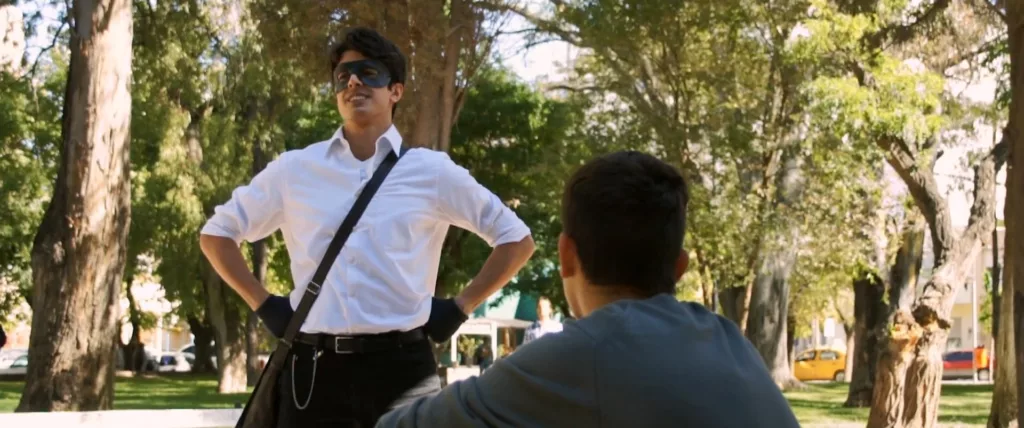
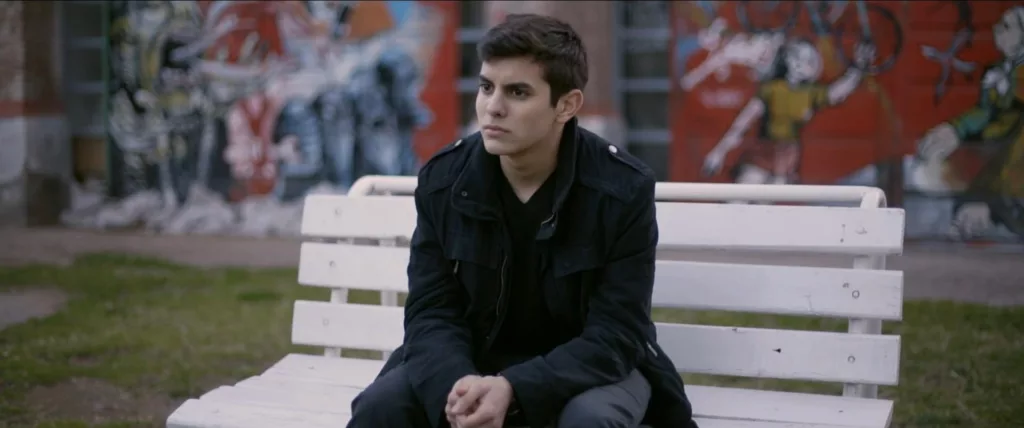
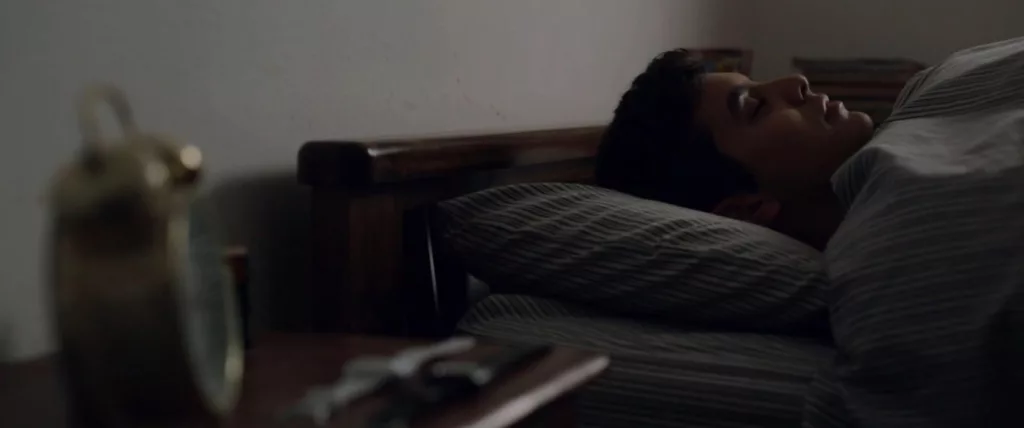
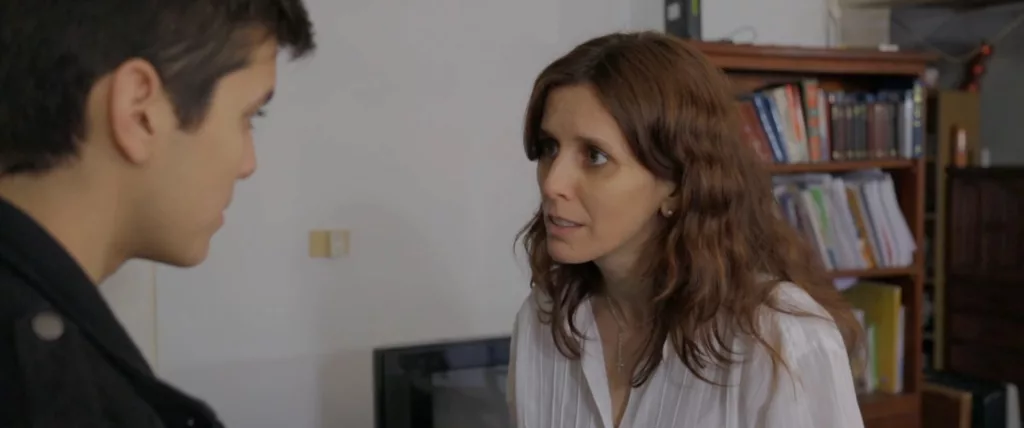
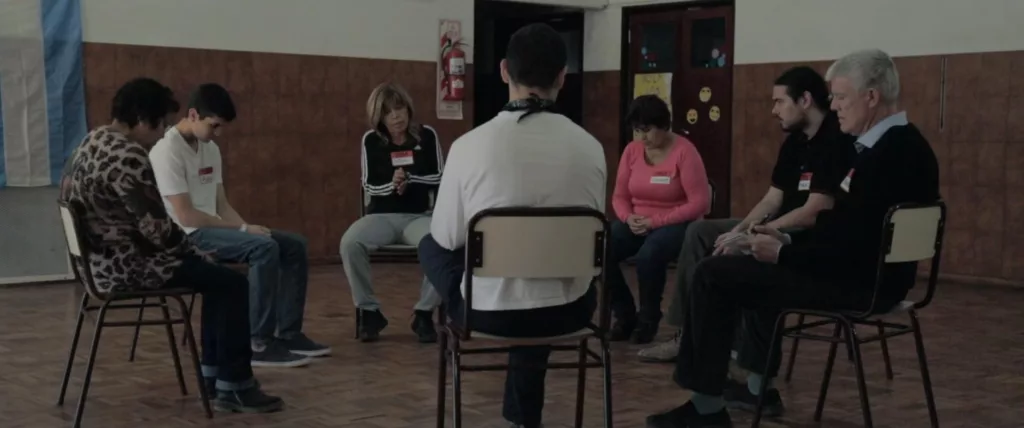








Discussion about this post